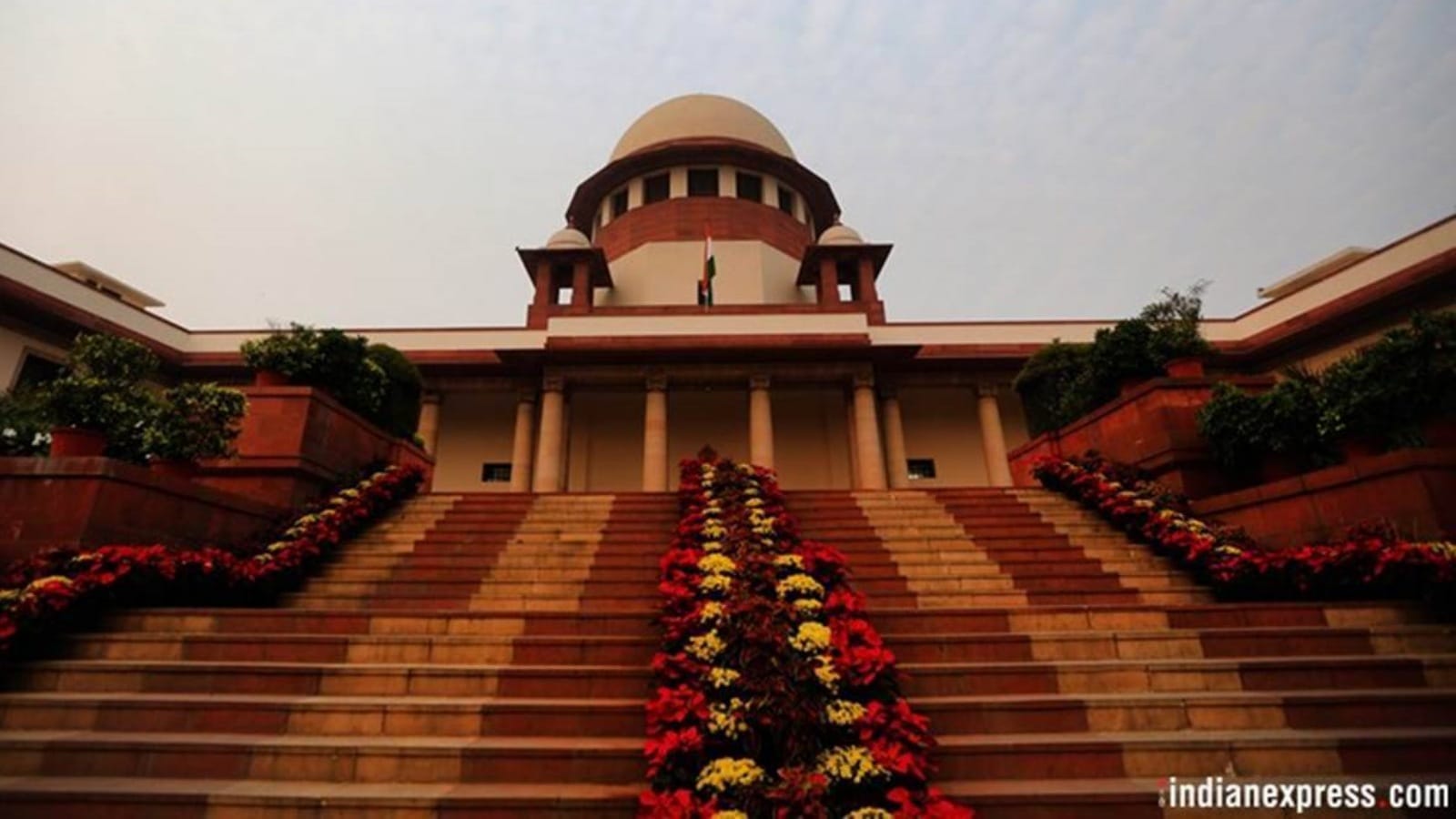How many availed Sec 6A of Citizenship Act: SC to Govt
Responding to the CJI’s statement, Senior Advocate Shyam Divan appearing for the petitioner said “this falls entirely in my favour. Because when we examine the cut-off dates — as far as people who have come after the atrocities — this extends no protection to them at all”.
 He added that “there are overarching principles of democracy, federalism, and the rule of law being part of the basic structure” involved in the matter “and Section 6A, in the manner in which it operates, might undermine these core values”.
He added that “there are overarching principles of democracy, federalism, and the rule of law being part of the basic structure” involved in the matter “and Section 6A, in the manner in which it operates, might undermine these core values”.
Defending the constitutional validity of Section 6A of the Citizenship Act, 1955, the Centre has told the Supreme Court that the provision “is a part of the legislative policy of Parliament, arising from a political settlement with relevant parties, based on certain relevant considerations of State policy and foreign policy” and as such is not arbitrary and has a rational nexus with the object sought to be achieved.
In written submissions before a five-judge Constitution bench of the court, Solicitor General Tushar Mehta said that “inasmuch as the object sought to be achieved by the legislation was to establish public order in the State and bring to an end a state of agitation in that State relating to a demand that there should be clear demarcation as to who are legitimate citizens and who are illegal migrants, there can be no doubt that there is rational relationship between the differentia and the objects sought to be achieved by the legislation in question”.
The government submitted that “the grant of citizenship to persons or a class of persons coming from a particular country is not just a national issue but essentially, inter alia, an outcome of political decisions of the State in respect of maintaining its foreign relations with the State in question and/or with any other foreign States. Such a decision is often a product of complex interplay of diverse factors such as social, economic, cultural and often extra-legal or extra judicial considerations. As a matter of legislative policy and from the purview of the Parliament, the said decisions do not involve any interplay of individual rights on either side of the divide”.
It added that “in that view, Section 6A is a part of the legislative policy of the Parliament, arising from a political settlement with relevant parties, based on certain relevant considerations of State policy and foreign policy. It may be submitted that the issue of extending any privilege to any non-citizens is deeply embedded in the concept of sovereignty itself”.
Explaining the historical background by which the Assam Accord came to be signed, the note added that “inasmuch as the Section was enacted expressly to give effect to the…Accord which is a political accord arrived at, it is apparent that it cannot be said to be an arbitrary and unreasonable exercise of legislative power. The very fact that the accord was the result of a consultative process and was entered into after extensive negotiations with representative groups of the people of Assam is sufficient in itself to negate the charge of arbitrariness. Applying the test of Article 14 to the facts of the present case it is apparent that the object of the legislation being to give effect to a political accord which is relevant specifically to the state of Assam, it cannot be said that the object itself is discriminatory or unlawful”.
The submissions come in response to petitions which have challenged the constitutional validity of Section 6A with the petitioners contending among others that it is arbitrary as it singles out Assam, violates Article 14 and has led to an influx of illegal migrants into the state from Bangladesh.
The SG will commence his arguments in the matter before the court on Thursday. The bench presided by Chief Justice of India D Y Chandrachud also comprises Justices Surya Kant, M M Sundresh, J B Pardiwala, and Manoj Misra.
Rejecting the charge that the state has been singled out to bear the load of the illegal migrants, the note said “both on historical and geographical grounds, it is possible to classify different states of India differently and, therefore, the classification which is implied in Section 6-A must be said to be based on intelligible differentia”.
The Centre said that “it is settled law that a ‘mathematical nicety’ or ‘perfect equality’ are not required as per Article 14. Further, the constitutionality of a statute cannot be questioned on the basis of fortuitous circumstances arising out of peculiar situations.
Rejecting arguments of arbitrariness, the Centre said that “the guarantee against non-arbitrariness under Article 14 does not require that every law must have universal application irrespective of dissimilarity or of the nature or attainments of the persons to whom it relates. The Legislature has always the power to make special laws to attain particular objects and for that purpose has authority to select or classify persons, objects or transactions upon which the law is intended to operate. Differential treatment becomes unlawful only when it is arbitrary or not supported by a rational relation with the object of the statute”.
The note said that “grant of citizenship to persons or a class of persons coming from a particular country is not just a national issue but essentially, inter alia, an outcome of political decisions of the State in respect of maintaining its foreign relations with the State in question and/or with any other foreign States. Such a decision is often a product of complex interplay of diverse factors such as social, economic, cultural and often extra-legal or extra judicial considerations. As a matter of legislative policy and from the purview of the Parliament, the said decisions do not involve any interplay of individual rights on either side of the divide”.
The government said that “the legislative competence of the Parliament to make the law concerning citizenship is not in question since the subject of citizenship falls in List I of Seventh Schedule which is in the exclusive domain of the Parliament”.
Meanwhile hearing the matter Wednesday, Chief Justice of India D Y Chandrachud presiding over the constitution bench quizzed the petitioners’ on their contention that the law was made selectively applicable to Assam and not other states.
“6A is a beneficial provision. Was Parliament bound to make that beneficial provision for all persons similarly circumstanced in order for it to be valid?” the CJI queried and added, “these are sometimes very vexed issues. At that point we have to put ourselves in the position in which the then Government of India was in 1985, the then Parliament in 1985, the situation in Assam when there was so much violence at that time. So any solution which they were finding is bound to be an inexact solution. You cannot have a mathematical solution in these cases”.
Senior Advocate Shyan Divan appearing for some of the petitioners contended that “the very existence of section 6A continuing on the statute book operates even today as a beacon to persons ti migrate illegally into Assam and then perhaps game the system in whatever way they want and make a claim for citizenship”.
Responding to submissions by Senior Advocate Vijay Hansaria, also appearing for the petitioners, the CJI also remarked that “If Parliament is entitled to legislate to confer citizenship, it is not bound to recognise the refugee status and confer citizenship on every hue and dimension. There may be people from different parts of the global south who may want to come into India… Parliament isn’t bound to pick out every one”.







